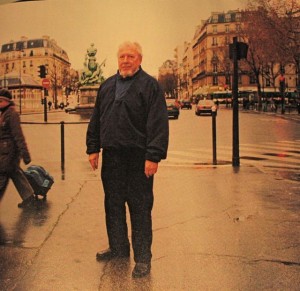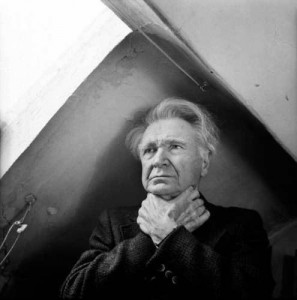
In Paris, Madrid, Bucharest and other European capitals the philosopher Emil Cioran (Romania, 1911-Paris, 1995) was honored months ago, his books were reissued to mark the centenary of the “howling philosopher” who influenced generations of young people. Cioran was evoked by Clément Rosset, Gallic philosopher of Hispanic origin, and by Fernando Savater, his Spanish translator and disciple.
Cioran and Rosset passed through the sharpest areas of reality and made a tragic diagnosis of the human condition, but Rosset, born in Paris in 1939, celebrates the joy of life, the joy of sexuality, the decisiveness of the illusions in humans, the importance of laughter and the weight of randomness in events; while Cioran “part of the smallness of man”, subscribing in his day to the phrase of the Catalan writer Josep Pla, “We are nothing, but it’s hard to admit it.”
Like the books of Emil Cioran, exiled in Paris, Clément Rosset and Fernando Savater, are ignored by the Cuban publishing houses, clinging to Marxism for half a century, sharing data and statements about these illustrious thinkers, unknown on the island.

Speaking of Cioran, Rosset said: “His pessimism is triggered by finding that the paradox of existence is to be something and at the same time, not to count for nothing. It is an atypical pessimism … resulting from knowing the ephemeral nature of man, the smallness of man. “
Rosset claimed the “tragic thinking” in the face of perfectionism and opposed the radical of Cioran, while acknowledging the lucidity of his arguments and reasons for his skepticism. For Rosset “There is no good in the world but that lucid examination ultimately makes it seem laughable and contemptible.”
The work of both essayists, of unusual originality, was released in France, Spain and other nations of Europe and America. Among the books published in Spain by Clément Rosset are The anti-nature (Taurus, 1974), The logic of the worst (S. Barral, 1976) Reality and its double (Jonathan Cape, 1983), The principle of cruelty (Pre-Texts , 1994), and Force majeure (2000).
We will not dwell on the texts Rosset, defined by Emil Cioran as “… a bon vivant who philosophy has not spoiled.” Now, however, some considerations of Fernando Savater on Cioran, expressed in his article “A man surprised … and surprising.“
The Spanish essayist recalls that Cioran “became a great French writer, but remained stateless. Spain was his second spiritual home, the native land of disenchantment, where he was sometimes more popular than in France. His readers were young from the anti-Franco left, but for him “the left was a hotbed of vacuous illusions and unfounded optimism.”
He notes that “the wonder approached us. There was a feeling of implacable hostility to any mobilizing belief and absolute rejection of the promise of future … “
He describes his encounters with the Romanian philosopher and warns: “… I could never convince him nor trick him … we accepted the pragmatic: are trying to live better, not to reach paradise. After the fall of Ceausescu, Cioran was inclined to a kind of skeptical pragmatism, I saw him celebrate historical events, without triumphant outbursts. “
Savater calls him “incurably skeptical in theory but capable at times of an almost childlike wonder at the effective mechanisms of the world and the miracles of friendship. Cioran remained in the land of wonder … he was amazed especially in that in life the marvelous coexisted with the horror …”
Some titles of his works have their own voice. We can extract the following: In the heights of despair (1936), Breviary of putrefaction (1949), Syllogisms of Bitterness (1952), The temptation to exist (1956), Falling in time (1966), The inconvenience of having been born (1973) and the last book dating from 1983, My damned self.

The Spanish thinker evoked the grave of the master, “a blue-gray stone, sober and minimalist” in the Montparnasse cemetery, like a great unknown; close to authors such as Sartre and Simone de Beauvoir, Julio Cortazar and Baudelaire.
In the end, Savater offered a collection of the “swipes” of Cioran. O share with Cuban readers some of those phrases about life, God, time, death or philosophy. Perhaps they will contribute to our spiritual enrichment.
“We do not always move attracted to light: sometimes it is the shadow that drives us …”
“A walk through the cemetery is an almost automatic lesson in wisdom.”
“The fact that life has no meaning is a reason to live, the only one, the reality.”
“To love your neighbor is unthinkable. Perhaps you would ask one virus to love another virus? “
“God is a disease we imagine to be cured because no one dies of it today.”
“Nature, seeking a formula to satisfy everyone, finally chose death, which, unsurprisingly, has not satisfied anyone.”
Literature. “The literature begins with praise and ends with exercises.”
“What would become of our tragedies if an insect presented us with his?”
“To glimpse the essence should not be exercised by any trade. We must remain lying down all day, and moan.”
“A people is not so much an accumulation of ideas and theories as of obsessions.”
October 13 2011
